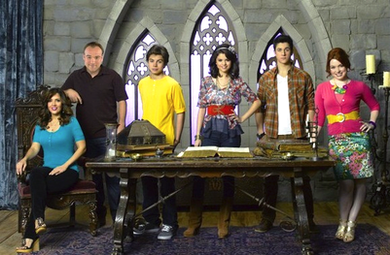If you don’t know why you are hear, please read about the 21 Day Happiness Training Challenge.
Insane Incentives
Spring is in the air.

At my son’s school, that means it’s time for the Minnesota Comprehensive Assessment tests. These are the standardized tests created by the No Child Left Behind Act that determine if a school is doing its job in educating children. If too many kids have lousy scores, the school gets put on the “Adequate Yearly Progress” list and will eventually get penalized financially.
That creates a perverted incentive in the school system. The main metric for a publicly-funded school’s success in Minnesota is the MCA. If a school can churn out illiterate trench-diggers, they will get increased funding as long as the test scores are good.
For a full two weeks before this test, the school effectively shut down the education program to prepare for the MCA test. That’s two weeks of studying for a set of standardized tests that focus on reading, writing, and arithmetic. I’m a fan of schools prioritizing the three Rs over other subjects, but that’s not what they did.
They spent two weeks studying testing strategies, not the material contained in the test.
In science class, they covered essential scientific elements like “Answer all of the easy questions first, so you can go back and spend time on the hard ones later.”
Spanish class covered verb usage similar to “When the time is almost out on the test, answer ‘C’ for all of the hard questions you have left, que?”
They weren’t being educated, they were learning the most effective way to solve a test to gain funding for next year.
For 2 weeks.
That’s not reading practice, or reviewing the parts of speech, or covering the necessary math skills. It’s “This is a #2 pencil. This is a circle. Practice until lunch.”
Is this really what NCLB was trying to accomplish? Standardized tests to measure school proficiency should be a surprise. Let’s randomly send in test proctors to take over a school for a day and see what the kids have actually learned.
Twitter Weekly Updates for 2010-05-08
- The Festival of Frugality #278 The Pure Peer Pressure Edition is up. All of your friends are reading it. http://bit.ly/aqkn4K #
- RT @princewally: Happy StarWars Day!: princewally's world http://goo.gl/fb/rLWAA #
- Money Hacks Carnival #114 – Hollywood Edition http://bit.ly/dxU86w (via @nerdwallet) #
- I am the #1 google hit for "charisma weee". Awesome. #
Property Managers
As of last Monday, we don’t have any tenants in our rental house.

That makes me sad.
It makes me sadder that we were too nice and gave them an extra week free to get their stuff moved out.
Now we get the fun job of painting, replacing the linoleum, and probably cleaning the place up to get it ready for new renters that we haven’t found yet.
New renters.
Ick.
Now, we could put an ad on Craigslist and try to find renters ourselves.
Background checks.
Credit checks.
Interviews and walk-throughs.
Then, when we find someone, we’ll be collecting rent and dealing with any whiny issues that come up.
Yuck.
Or….
We can hire a property manager. The big name property management company in our area charges a $99 set-up fee plus $80 per month.
That covers:
- Rent collection
- Coordinating maintenance
- Accounting
- All of the other mundane details
If we add on the tenant-finding service, we’ll be paying them one-month’s rent, but they’ll handle the showings, advertising, background checks, and the lease. And their average tenant placement is 19 days. Another house in the neighborhood that used them had the house rented in about a week.
That moves our landlording firmly into the passive side-hustle category and all it costs us is (essentially) one and a half month’s rent with the added bonus that we’ll be asking the right amount for rent according to the market, instead of guessing. Our last tenants were probably paying $300 too little.
I think the property managers are the way to go, but I have absolutely no experience here.
Have any of you used a property manager? Was it good? Bad? Hell-on-Earth?
Selena Gomez: Can Child Stars Make It As Adults?
Selena Gomez is no longer the innocent yet rebellious Alex from Disney’s hit show Wizards of Waverly Place. In fact, the quirky and wholesome child star who was beloved by so many young women has now become a scantily

clad pop star that is singing risque lyrics to her on again off again pop star boyfriend Justin Beiber. Her transition to adult stardom has not been an easy one, and many believe that her role in “Spring Breakers” is a sign that she has officially entered adulthood and kissed her teen-friendly role preference in the past. But unlike other famous Disney child stars like Lindsey Lohan and Britney Spears, Gomez has had a relatively smooth path to adult stardom with only minor bumps in the road. But many people are asking themselves whether or not child stars can actually make it as adults, or whether their career is over once their cute phase stages.
Child stars are aware of the fact that they are always being watched. They become the idols of their young fans, and these young idols rely a lot on their cuteness to become a celebrity. But transitioning from a cute kid to a talented adult actor can be a difficult feat. Not only does the star have to earn a new fan base, they also must find a new identity and decide which types of roles they are willing to take now that they are a mature adult able to make their own decisions. Sometimes, even children who do not fall into the drug and alcohol trap, find it difficult when they are given control of their own careers without their guardian’s rules.
The Public is Less Receptive to a Child Star Turned Adult Star
Die hard Wizards of Waverly Place will always see Selena Gomez as the lovable yet comedic Alex Russo. While this was her most popular role, it is the role that will makes her transition into more mature roles difficult. The public is less receptive to an adult Selena Gomez, clad in bra tops and short shorts, because they do not realize that she has matured. When the public shuns a child star for taking on more adult roles, the star simply is not sought after for movies and sitcoms. Young female child stars tend to be judged much more than their male counterparts. In fact, Justin Timberlake and Ryan Gosling are both very successful in the acting scene, and they were both Mouseketeers.
It is possible for a child star to make it as a adult, but the person must have thick skin and be prepared for a publicly criticized transition. Many child stars simply choose to retire once they have outgrown the ability to take on youthful roles, and others are not mentally prepared for the scrutiny they will face. Ultimately, a child star can have a successful career in stardom as an adult if the public is ready for the transition.
A Late-Blooming Career Cut Short: Dennis Farina Passes at 69
Dennis Farina’s acting career was unique in Hollywood as one of the few actors to garner success later in life. This “late-bloomer” started his acting career at 37 years old, after almost 20 years as a Chicago police officer. He

was well known as a character actor, playing a cop on NBC’s “Law & Order,” and one of the only cast members that had been on the police force in real life.
Dennis was born on February 29, 1944 to Italian parents in Chicago. His father, Joseph, was a doctor and an immigrant from Sicily. This leap-year baby would go on to serve 3 years in the military and then to serve his native city as a policeman from 1967 to 1985. He worked mostly in burglary and it was there that he was hired by director Michael Mann as a consultant for the movie “Thief” (1981), starring James Caan. Farina was given a bit part in the movie and would go on to work for Mann in future roles. After a brief stint acting in Chicago theater, he left the police force for a lead role in Mann’s television series “Crime Story” (1986). He also played mobster Albert Lombard in Mann’s other television show, “Miami Vice.”
Farina’s distinguishing looks made him perfect for his roles as a cop or a gangster. He was tall and imposing, with a memorable silver mustache. He worked steadily in both television and the movies after quitting the Chicago police force. His first major movie role was another Michael Mann movie, “Manhunter”(1986), in which he played an FBI agent. This was the first of the Hannibal Lecter films and Farina would go on to star in all three.
Farina’s most memorable movie roles were in 1998’s “Saving Private Ryan” in which he played a colonel who convinces Tom Hank’s character to rescue Private Ryan from the Nazis. He was known for his comedy roles as well as his serious characters. In “Get Shorty,” Farina received an American Comedy Actor award for his performance as “Ray ‘Bones’ Barboni, John Travolta’s rival.
Dennis Farina’s other screen credits include “Out of Sight” with Jennifer Lopez; John Frankenheimer’s “Reindeer Games,” Guy Ritchie’s “Snatch,” as well as the 2008 comedy, “Bottle Shock”. He was narrator for the TV show “Unsolved Mysteries,” replacing Robert Stack as the original host. Farina starred alongside Cameron Diaz and Ashton Kutcher in “What Happens in Vegas” (2008). Another comedic role was in HBO’s “Empire Falls,” starring Helen Hunt and Ed Harris. His last recurring TV role was in “Luck,” the 2012 horse racing series.
Farina and his wife of 10 years, Patricia, had three sons. Joseph Farina followed in his father’s footsteps and became an actor. And sadly, Dennis Farina’s second act in life came to a close on July 22, 2013. He was only 69 years old when he died from a pulmonary embolism at his home in Scottsdale, Arizona.






